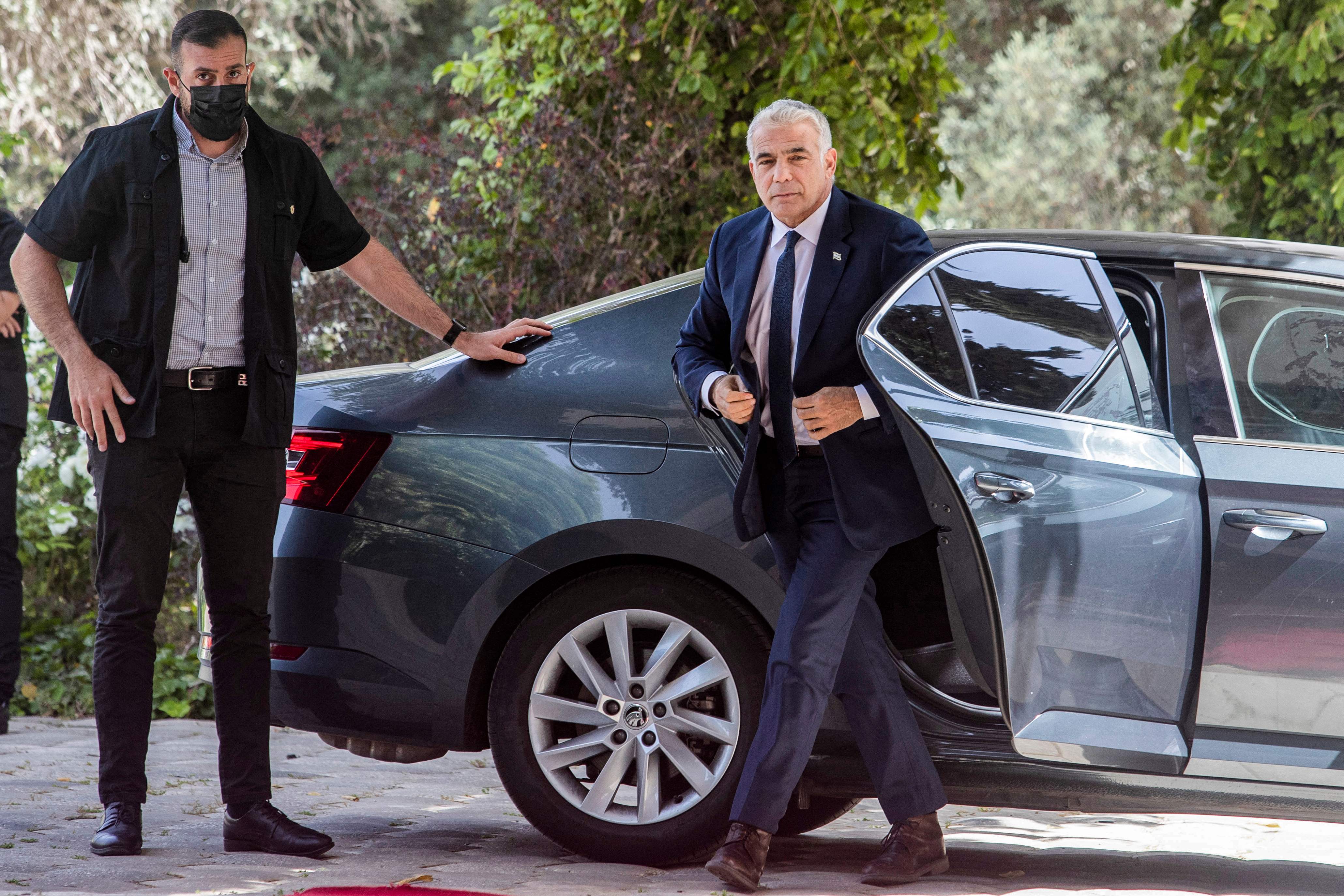Is the end near for Netanyahu? Israel president asks opposition leader to try and form government
Netanyahu has been in power for 12 years and is Israel’s longest serving PM

Your support helps us to tell the story
From reproductive rights to climate change to Big Tech, The Independent is on the ground when the story is developing. Whether it's investigating the financials of Elon Musk's pro-Trump PAC or producing our latest documentary, 'The A Word', which shines a light on the American women fighting for reproductive rights, we know how important it is to parse out the facts from the messaging.
At such a critical moment in US history, we need reporters on the ground. Your donation allows us to keep sending journalists to speak to both sides of the story.
The Independent is trusted by Americans across the entire political spectrum. And unlike many other quality news outlets, we choose not to lock Americans out of our reporting and analysis with paywalls. We believe quality journalism should be available to everyone, paid for by those who can afford it.
Your support makes all the difference.Israel’s president has officially tasked opposition leader Yair Lapid with trying to form the country’s next government after Benjamin Netanayhu failed to secure the backing of enough parties to form even a knife-edge majority.
The news dealt another blow to Mr Netanyahu, Israel’s longest-serving prime minister, whose political future hangs in the balance after the country’s fourth inconclusive election in two years.
The president, Reuven Rivlin, announced that Mr Lapid, who heads up the centrist Yesh Atid Party, would have 28 days in which to try to secure at least 61 seats of the 120-seat parliament.
It came after the president held talks with Mr Lapid, and also Naftali Bennet, a former Netanyahu ally, who only secured seven seats in the March election but has emerged as a kingmaker by carrying the votes all sides need to secure a parliamentary majority.
Mr Rivlin said that Mr Lapid currently had the backing of 54 members of parliament. He now has a month to win over seven additional Knesset members in order to rule. The Israeli president added: “It is clear that parliament member Yair Lapid could form a government that has the confidence of the Knesset, despite there being many difficulties.”
Accepting the nomination, Mr Lapid said he aimed to establish a government of the left, right and centre “that will reflect the fact that we don’t hate one another”.
Mr Netanyahu lashed out at Mr Bennett, accusing him and his party of leading Israel into a “dangerous left-wing government”, Israeli media reported.
Earlier in the day, Mr Bennett had called for a broad “unity government”, signalling he would be willing to team up with Mr Lapid despite their differences.
Mr Lapid has already indicated he would be willing to strike a prime-ministerial rotation deal with Mr Bennett, with Mr Bennett serving first as premier. But they have not reached any firm agreements, probably because Mr Bennett has faced pressure from within his own party and right-wing bloc angered by a potential alliance with a party that is considered too left-wing.
The parties that oppose Mr Netanyahu represent a wide spectrum of conflicting ideologies, from right-wing Israeli nationalist parties to left-leaning Arab majority parties.
The elections held on 23 March ended in deadlock for the fourth consecutive time in the past two years.
Despite Mr Netanyahu’s repeated meetings with many of his rivals and an unprecedented approach to the leader of a small Islamist Arab party called Ra’am, the prime minister was still unable to form even the slimmest of majorities.
Anshel Pfeffer, an Israeli journalist and author of a biography of Netanyahu, told The Independent this was the closest Mr Netanyahu, Israeli’s five-term prime minister, has ever come to losing his premiership.
“This is the closest [the opposition] have been to getting rid of Netanyahu in the last two years. But there are many more months of deadlock,” he told The Independent.
“There is no way [Netanyahu] can swear in a government. But it’s still about a 50-50 chance between a fifth election or a Lapid-Bennet government, as they have to navigate a minefield.”
“For Netanyahu, the only good outcome is the next election,” Pfeffer added.
President Rivlin gave Mr Netanyahu the first chance to form a coalition, after 52 members of parliament endorsed him as prime minister last month. That was short of the 61 required for a majority, but it was the highest number for any party leader.

During Wednesday’s consultations, the 52-member pro-Netanyahu bloc asked Mr Rivlin not to give another candidate a chance to form a government and instead send the matter directly to parliament.
In a statement, the Likud Party claimed there was no viable combination for an alternative coalition and that prolonging the negotiation process was a waste of time. Moving straight to parliament, which would likely see another election, "will save another period of uncertainty for the state of Israel”, it said.
Mr Netanyahu struggled to secure enough seats as he campaigned for re-election under the shadow of three corruption trials.
He has been charged with fraud, breach of trust and bribery in a series of scandals. The trial has moved into the witness phase, with embarrassing testimony accusing him of trading favours with a powerful media mogul.
Mr Netanyahu vehemently denies the charges, accusing law enforcement, the judiciary and the media of waging a left-wing “witch-hunt” against him.





Join our commenting forum
Join thought-provoking conversations, follow other Independent readers and see their replies
Comments